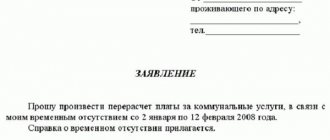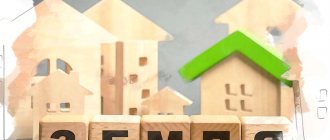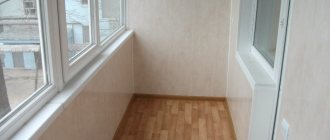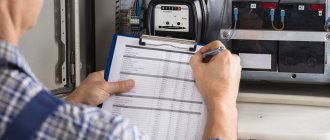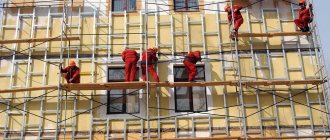The purpose of creating a homeowners association
An HOA is formed for the effective management of real estate owned by the participants of this association. Owners of housing in apartment buildings most often unite in partnerships, but this is not prohibited for owners of private houses located on neighboring plots.
The HOA is formed for:
- maintaining the property of the owners in proper condition;
- its timely repair;
- creating conditions for comfortable living.
In addition, the partnership is not prohibited from engaging in commercial activities and generating income. This could be small paid repair services for residents of the association, the provision of real estate for rent, advertising, etc.
Income from business activities
To achieve its statutory goals, the HOA is allowed to conduct business activities.
Thus, an HOA can carry out the following types of activities:
- renting out part of the common property (for example, basements, attics, walls for advertising signs);
- maintenance, operation and repair of real estate in an apartment building;
- construction of additional premises and common property of an apartment building.
The HOA must spend the profit received from the listed types of business activities for the purposes specified in the charter, or for the purposes specified in the decision of the general meeting of the HOA members.
This is stated in Article 152 of the Housing Code of the Russian Federation.
Sources of partnership funds
Partnership funds can be formed through:
- membership fees, entrance fees, and other similar income;
- subsidies;
- income from the organization's commercial activities.
Money received as membership or other fees does not form the partnership’s income and is used to pay for utilities and maintain housing in proper condition. When carrying out activities and concluding contracts, the HOA must act only in the interests of home owners.
A partnership is not an economic entity created to conduct commercial activities. The list of activities permitted for such organizations is closed and has strict restrictions.
The HOA can carry out:
- maintenance and repair of real estate in the partnership;
- construction of additional real estate;
- provision of premises for rent.
The revenue that goes to the organization’s accounts from this forms special funds. It can be spent in those areas that are provided for by the charter of the partnership.
What applies to target revenues?
The targeted revenues of the HOA are the funds necessary for the activities for which it was created, that is, for the statutory activities.
The HOA is created to:
- jointly manage the common property of the owners, create, preserve, maintain and increase it;
- ensure the ownership, use and disposal of common property;
- provide utilities to residents;
- carry out other activities aimed at achieving the goals of managing an apartment building.
This is stated in Article 135 of the Housing Code of the Russian Federation.
To carry out its statutory activities, the HOA has the right to attract the following funds:
- mandatory payments, entrance and other contributions of members of the partnership;
- income from business activities;
- budget revenues;
- other supply.
This conclusion follows from Article 151 of the Housing Code of the Russian Federation.
These funds are targeted revenues, since all of them are spent on performing the tasks assigned to the HOA.
Entry fees are the amount that owners pay at a time when accepted into the HOA (subclause 1, clause 2, article 151 of the Housing Code of the Russian Federation). These fees cover the HOA's organizational costs for documenting new members.
Mandatory payments are payments made by owners as required by law. These are payments for the maintenance and repair of the common property of an apartment building, as well as payments for utilities. This is stated in paragraph 5 of Article 155 of the Housing Code of the Russian Federation.
Payment for the maintenance and repair of residential premises includes payment for services and work on the management of an apartment building, maintenance, current and major repairs of common property.
Utility fees are payments for cold and hot water, sewerage, electricity, gas, heating. Moreover, both for those consumed in one’s own premises and for the needs of common property (clause 40 of the Rules, approved by Decree of the Government of the Russian Federation of May 6, 2011 No. 354).
All owners of residential premises must pay mandatory contributions for the needs of common property, regardless of their membership in the HOA. This conclusion follows from paragraph 1 of Article 36 and Article 39 of the Housing Code of the Russian Federation, subparagraph “b” of paragraph 16 of the Rules, approved by Decree of the Government of the Russian Federation of August 13, 2006 No. 491.
Situation: do owners of non-residential premises of an apartment building need to pay mandatory contributions for the needs of common property?
Common property belongs by right of common shared ownership to all owners of premises (Clause 1, Article 36 of the Housing Code of the Russian Federation). Therefore, each owner of the premises is obliged to bear the costs of maintaining common property (Clause 1, Article 39 of the Housing Code of the Russian Federation). Each person's share in these expenses is commensurate with the share in the right of common ownership of common property (clause 1 of Article 158 of the Housing Code of the Russian Federation). The obligation to maintain common property applies to both owners of residential and non-residential premises. The validity of this approach is also confirmed by arbitration practice (see FAS Volga-Vyatka District in resolution dated August 6, 2012 No. A17-4344/2011, FAS North-Western District in resolution dated May 30, 2012 No. A05-8027/2011) .
As for utilities for general house needs, the obligation to pay for them by the owners of non-residential premises of an apartment building is directly enshrined in paragraph 18 of the Rules, approved by Decree of the Government of the Russian Federation of May 6, 2011 No. 354.
Thus, owners of non-residential premises must pay mandatory contributions for the needs of common property.
Amount of mandatory payments
Payment for the maintenance and repair of the house is established by the general meeting of owners. The amount of the fee depends on the list of works and services that need to be performed in the house and on the land. Moreover, it must be proportionate to the approved list, volume and quality of services and work (clause 35 of the Rules, approved by Decree of the Government of the Russian Federation of August 13, 2006 No. 491).
If the owners have not decided to establish the amount of payment for the maintenance and repair of the house, then this amount is established by the local government (clause 4 of Article 158 of the Housing Code of the Russian Federation).
Utility tariffs are regulated by the state and ultimately approved by local authorities. The HOA calculates the amount of fees for utility services based on standards and (or) meter readings.
For more information about mandatory payments, see:
Accounting statements of the partnership
In accordance with accounting legislation, HOAs are required to generate and submit reports to tax services, the Pension Fund, and statistical authorities. The partnership's financial statements for the year include:
- balance;
- income statement;
- report on the intended use of funds.
The responsibility for accounting and reporting remains with the HOA, even if it does not conduct commercial activities and applies the simplified tax system. In addition to the above forms, the HOA is required to maintain a register of members of the partnership.
Accounting in HOAs
If the renovation of an apartment building will be carried out with the involvement of specialized contractors, then account 60 “Settlements with suppliers and contractors” will correspond with the debit of account 20 “Main production”. Repayment of debt to the contractor when making payments in cash will be reflected in the debit of account 60 “Settlements with suppliers and contractors” and the credit of account 51 “Settlement accounts”. Write-off of repair costs reflected in account 20 “Main production”, as in the previous case, will be made at the expense of targeted financing.
We recommend reading: Documents for filing a tax deduction declaration for the purchase of an apartment
From paragraph 10 of Article 21 of Law No. 402-FZ, it follows that simplified methods of accounting, including simplified accounting (financial) statements, for homeowners associations that have the right to use such methods in accordance with Law No. 402-FZ, must be established by a federal standard. However, today there is no such standard.
Tax accounting for homeowners associations
Features of accounting under the simplified tax system
In most cases, the HOA prefers a simplified system. The main advantage of the simplification for HOAs is a reduction in insurance premiums (20% rate). The HOA accountant must distinguish between receipts that are classified as income and amounts that do not fall under this definition and, accordingly, under taxation.
The following income does not count as partnership income under the simplified tax system:
- contributions;
- from the owners for the maintenance of the property;
- from the budget for real estate repairs, including capital ones.
According to the charter of the HOA, the main purpose of its creation is the maintenance of common real estate and the provision of utilities to members of the partnership.
Therefore, all funds received by the partnership for such purposes are not included in the income of the organization. It is necessary to take into account that funds received for these purposes from HOA members are not considered income. But funds received for the same purposes from persons who are not members of the partnership are considered income and are subject to taxation.
Cash receipts that are subject to and non-taxable must be accounted for separately. It is also important to ensure separate accounting of expenditures of funds received as targeted revenues. Therefore, the priority areas of work for an HOA accountant include drawing up cost estimates and distribution of costs, organizing analytical accounting of the organization’s costs.
Paying taxes when using the OSNO regime
Homeowners' associations using OSNO are payers of income tax and VAT.
- Income tax. Funds related to targeted financing are exempt from the accrual and payment of this tax. These are amounts received from the owners of housing in the partnership for the repair and maintenance of the HOA premises in proper condition. All income and expenses of the HOA must be taken into account separately. If this condition is not met, then the amounts of targeted financing are subject to taxation in accordance with the generally established procedure. Entry, membership, share fees, donations, and funds in reserve for repairs are not subject to taxation. Tax accounting of amounts received as income in HOAs is no different from accounting in other organizations engaged in commercial activities.
- VAT. HOAs that do not apply special tax regimes are VAT payers. This tax does not apply to targeted funds, the receipt of which is not determined by the commercial activities of the organization. There are VAT benefits for partnerships. The sale of HOA services for the maintenance and repair of premises is not subject to VAT.
Accounting and tax accounting in HOAs: is there any implementation?
As noted above, officials insist that the activities of the HOA in the maintenance and repair of common property in the apartment building, as well as in the supply of utility resources, should be interpreted precisely as the provision of services to members of the HOA and other persons with all the ensuing consequences. In particular, this means the need to recognize income in tax accounting (both under the general tax regime and under the simplified taxation system) and use account 90 “Sales” in accounting.
Thus, when calculating the amounts of mandatory contributions and payments to be made by HOA members (owners, tenants), it is necessary to debit account 76 (to which a sub-account is opened to account for settlements with residents, providing analytics for each HOA member, owner, tenant, etc. .) and credit account 86. When funds are received at the cash desk or to the settlement account of the HOA, account 50 “Cash Office” or 51 “Settlement Accounts” is debited and the corresponding analytical account of the synthetic account 76 is credited. The actual costs of the HOA associated with the performance of its functions are reflected on account 20. If necessary, management expenses can be collected separately on account 26. At the end of each month, the use of target funds to finance incurred expenses is reflected by writing off the costs from the credit of account 20 to the debit of account 86.
We recommend reading: What document confirms ownership of an apartment
Reflection of transactions on HOA accounts: postings
Business transactions in the accounting accounts are reflected as follows:
| Account correspondence | Contents of operation | |
| Debit | Credit | |
| 76 | 86 | Debt of a member of the partnership for contributions |
| 62 | 90 | Debt of a property owner who has not entered into a partnership |
| 26 | 70, 69,02, 10 | Expenses for maintaining HOA property |
| 26 | 68 | Calculation of a single tax under the simplified tax system |
| 26 | 60 | Costs of maintaining the premises of the partnership (services from third party providers) |
| 86, 20 | 26 | Costs have been distributed between HOA members and premises owners who have not joined the partnership |
| 90 | 20 | Expenses for maintaining property that does not belong to HOA members are written off |
| 90 | 51 | Bank expenses |
| 99 | 84 | Reformation of the balance sheet (in the case when the financial result is profit) |
| 84 | 86 | Replenishment of target financing funds from retained earnings |
| 76, 62 | 84 | Claimed loss to be covered |
| 86,20 | 96 | Creation of a repair fund |
Example 1. As a result of the commercial activities of the partnership, a financial result was formed over the year - a profit in the amount of 3,000 rubles. This amount, in accordance with the decision of the HOA members, was spent on landscaping the area in the courtyard of the house. The following entries were made in the accounting records of the partnership:
| Account correspondence | Sum | Contents of operation | |
| Debit | Credit | ||
| 84 | 86 | 3000 | Profit from commercial activities is included in targeted financing |
| 26 | 60 | 3000 | Costs for landscaping the site (performed by the contractor) |
| 60 | 51 | 3000 | Transferred to the contractor for site improvement work |
| 86 | 26 | 3000 | Write-off of targeted financing funds used for their intended purpose |
| 012 | 3000 | The constructed site has been registered | |
Have a question for a lawyer?
Natalya, what kind of water treatment is it’s not entirely clear
Client clarification
Water purification for the operation of gas boilers, and at the same time purification of drinking water... And the peculiarity of the apartment is that I have a separate entrance, like a tackhouse, and we repair everything that needs to be done - the porch, the canopy, etc. ourselves, but all the needs of the house (canopies for you steps and entrances) I also pay based on the area)) this is already laughter through the tears)) I am very grateful to you for your answer!
07 November 2013, 22:21
Natalya, if I were you, I would first request all the documents: the management agreement and the decision of the microdistrict to approve the work and their cost, a report on the expenditure of funds with calculations, a decision of the general meeting (at least 2/3 “for”) on installing this filter for cleaning a gas boiler with documents for this boiler, who installed it and how much it was bought for, and then check. those. To begin with, reduce debit credit. The management of the homeowners association is obliged to provide these documents within 3 days. if you do not provide them, the housing inspectorate and the prosecutor's office will impose a fine
Are you a member of the HOA? did you sign the contract?
According to Article 158 of the Housing Code of the Russian Federation
The owner of premises in an apartment building is obliged to bear the costs of maintaining the premises belonging to him, as well as to participate in the costs of maintaining common property in an apartment building in proportion to his share in the right of common ownership of this property by paying fees for the maintenance and repair of residential premises and contributions for major repairs .
That is, if you are the owner of a home, then you are obliged to participate in the costs of maintaining common property in an apartment building in proportion to your share in the right of common ownership of this property by paying fees for the maintenance and repair of residential premises and contributions for major repairs.
In accordance with Article 137 of the Housing Code of the Russian Federation
1) conclude, in accordance with the law, a management agreement for an apartment building and other agreements ensuring the management of an apartment building, including the maintenance and repair of common property in an apartment building;
2) determine the estimate of income and expenses for the year, including the necessary expenses for the maintenance and repair of common property in an apartment building, the costs of major repairs and reconstruction of an apartment building, special contributions and deductions to the reserve fund, as well as expenses for others established by this chapter and the articles of association of the purpose partnership;
3) establish, on the basis of the accepted estimate of income and expenses for the year of the partnership, the amounts of payments and contributions for each owner of premises in an apartment building in accordance with his share in the right of common ownership of common property in the apartment building;
4) perform work for the owners of premises in an apartment building and provide them with services;
5) use loans provided by banks in the manner and under the conditions provided for by law;
6) transfer material and monetary resources under an agreement to persons performing work for the partnership and providing services to the partnership;
7) sell and transfer for temporary use, exchange property belonging to the partnership.
2. In cases where this does not violate the rights and legitimate interests of the owners of premises in an apartment building, the homeowners association has the right to:
1) provide for use or limited use part of the common property in an apartment building;
2) in accordance with the requirements of the law, in the prescribed manner, build on, rebuild part of the common property in an apartment building;
3) receive for use or receive or acquire land plots into common shared ownership of the owners of premises in an apartment building for housing construction, construction of utility and other buildings and their further operation;
4) carry out, in accordance with the requirements of the law, on behalf and at the expense of the owners of premises in an apartment building, the development of allocated land plots adjacent to such a house;
5) enter into transactions and perform other actions consistent with the goals and objectives of the partnership.
3. If the owners of premises in an apartment building fail to fulfill their obligations to participate in common expenses, the homeowners’ association in court has the right to demand forced reimbursement of mandatory payments and contributions.
. A homeowners' association may demand in court full compensation for losses caused to it as a result of the failure of the owners of premises in an apartment building to fulfill their obligations to pay mandatory payments and contributions and pay other general expenses.
That is, the HOA has the right to carry out all of the above actions, including performing work for the owners of premises in an apartment building, providing them with services and
establish the amount of payments and contributions for each owner of premises in an apartment building in accordance with his share in the right of common ownership of common property in the apartment building;
Therefore, the size of the HOA fee is calculated correctly (if the price per meter is appropriate)
If the HOA has established a fee for centralized water treatment for the entire house, then you cannot refuse this service and therefore are required to make a payment.
If we are talking about autonomous systems for each apartment, then you have the right to refuse installation.
Thus, now you should familiarize yourself with the decision of the HOA, clarify which system will be installed (general or individual) and correctly assess your situation.
Also, if you are not present. member of the HOA, then you are not required to participate in additional costs.
I can provide services for drawing up a claim, as well as provide additional advice. issues of homeowners' rights
Sincerely, F. Tamara
Accounting for utility bills
It is necessary to pay attention to the procedure for accounting for utility payments received from the owners of premises when applying the simplified tax system in the partnership. The organization's charter may stipulate its obligation to provide such services to its members and enter into contracts with suppliers on their behalf.
In this case, only the difference between the amount of income from utility bills and their cost is subject to taxation, i.e. remuneration to the partnership for the services of an agent. Payments by those property owners who have not entered into a partnership are subject to taxation in full, unless agency agreements are concluded between them and the HOA .
